Newsletter PEP4LEP – September 2019
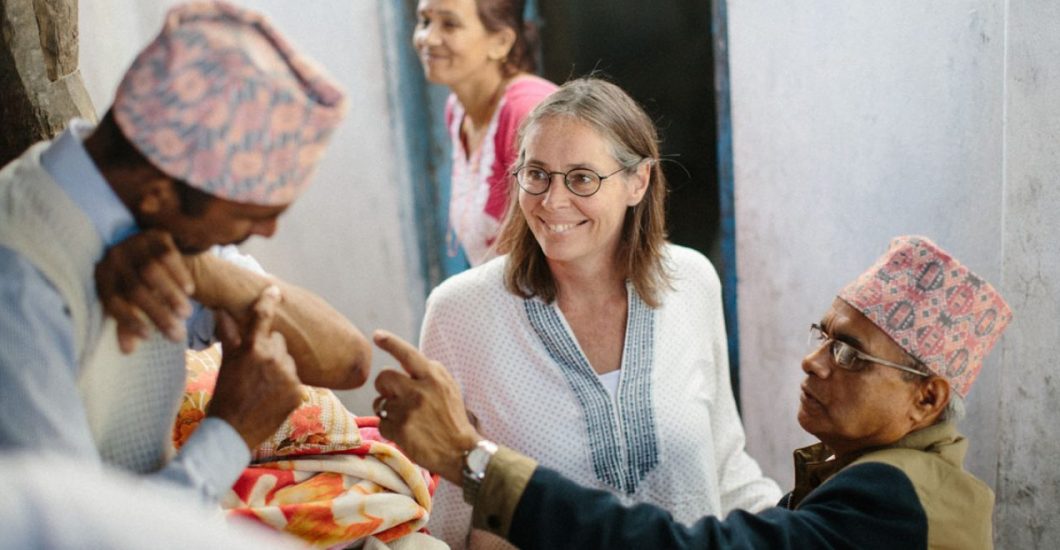
Ethical approval
A little while after the last newsletter was sent out, all PEP4LEP countries submitted their national study protocol for ethical approval. In July, the great news was shared that Tanzania had obtained ethical approval. One month later, the ethical board in Mozambique also approved the PEP4LEP research. Congratulations!
Randomisation
In June, Erasmus MC performed the randomisation of the PEP4LEP districts in all countries. This provides the opportunity for the local health centres to start preparations for either the skin camp based intervention or the health centre based intervention.
PhD students
Last August, all involved research institutes have found PhD students. Welcome to the PEP4LEP consortium!
- Nelly Mwageni, CUHAS – Medical Doctor in Dermatology. PhD subject: Integrated skin diseases approach & capacity assessment study
Nelly Mwageni, is a Tanzanian from the smaller tribe of Bena from the Ruvuma region in the southern highlands of Tanzania. She did her undergraduate at CUHAS (formerly known as BUCHS) in Mwanza from 2004 to 2009. She was then hired at Bugando medical center in the department of obstetrics and gynecology where she worked as registrar. Afterwards, she assisted a dermatologist for three years which led to her taking part in a four years master course in dermatology at Kilimanjaro Christian Medical University College (KCMUCo) in Kilimanjaro, Tanzania. She finished her master programme in 2017 and came back at Bugando Medical Centre to work as dermatovenerologist and teach medical student at CUHAS-BMC.
She is the mother of four children. She loves to test and try new food from other cultures. She likes playing with her kids and enjoys walking, traveling, learning new things and having social gatherings.
She hopes this project will be as a stepping stone for her to reach her future dreams of becoming a good clinician, a good researcher and a good teacher for the people of Tanzania and the world.
- Abdoulaye Marega, Lúrio University – Medical doctor and master in Tropical Medicine and International Health. PhD subject: Feasibility and acceptability study capacity of health workers in diagnosing leprosy and other NTDs that manifest with skin lesions.
Abdoulaye Marega was born in the prefecture of Dabola – which is located in the centre of the country Guinee – on January 1st 1975, as the youngest of a large family. He grew up in Faranah ” Sankaran ” in Guinee. He is married and father of two boys, the first is 9 years old and the second is one year old. He lived in Nampula, Mozambique for 10 years. He likes reading, taking touristic walks in off-peak hours, and eating African dishes.
Dr. Marega stated: “Before discovering this project, I had in my journal the project of chemoprophylaxis planned for the district of Murrupula and the establishment of a study center for neglected tropical diseases in Nampula. I was looking for funding. The PEP4LEP project will be the solution of the recommendations of the two previous projects led by my team in Murrupula District, Nampula, Mozambique. I am fascinated by the documents developed for the execution of the project and the level of organization and communication between the NLR and the researchers.”
Dr. Marega states: ”only the dead who does not dream ”. His future dreams are:
- To be an international teacher and teach in African universities.
- To create a Higher Institute of Public Health and Tropical Medicine for solving problems in Africa.
- To create an operational organization in major epidemics in Africa.
- To create a research center on neglected tropical diseases in Nampula, Mozambique.
- Ephrem Mamo, AHRI – Master of Public Health in Epidemiology. PhD subject: Cost-effectiveness study
Ephrem Mamo was born in Arsi zone, Oromiya Regional state, Ethiopia, he likes to spent his time with his family and friends, reading books (Holy Bible) and watching TV. His favourite food is shiro wot (Ethiopian local food). He has eight years working experience as lecturer in Jigjiga University, Assosa University and Yekatit 12 Hospital Medical College and as a Research Assistant and supervisor in the Ethiopian public health research institute. Currently he is a PHD student in Addis Ababa University, Aklilu Lema Institute of Pathobiology, Tropical and infectious disease department. His future dreams are to be a scientist or researcher, to solve the big health problems of Ethiopia.
- Tom Hambridge, Erasmus MC – Master in Global Health and Immunology. Main PEP4LEP job: PEP4LEP data-manager. PhD subject: Overall-study outcomes
Tom Hambridge is originally from Australia but currently living in Amsterdam. He studied in Australia (BSc Medical Microbiology & Immunology), the US (Data Management) and Sweden (MSc Global Health). He has scientific experience in clinical research and drug development as well as in managing international trials in both academia and the private sector. He worked in several medical fields: oncology, nephrology, autoimmune disorders, infectious diseases and vaccines (e.g. the development of Janssen Pharmaceutical’s Ebola vaccine). Before he came to Amsterdam one year ago, he worked in Canada and the UK. In his spare time, he enjoys playing basketball and attending music concerts. His favourite food includes anything with avocados and red onion. He is very excited to continue collaborating with all country teams on the electronic database, to ensure efficient access to study results in the future.

Data management
It is important to ensure a smooth start of the inclusion of study participants on short notice. Therefore, the data collection and management system needed to be discussed. Tom, who is also responsible for the data management at Erasmus MC, visited Ethiopia and Tanzania to align data collection tools with the national systems. The experience of Tanzania with the LPEP project and of Ethiopia with RedCap was very valuable in this process. A visit to Mozambique is planned in November
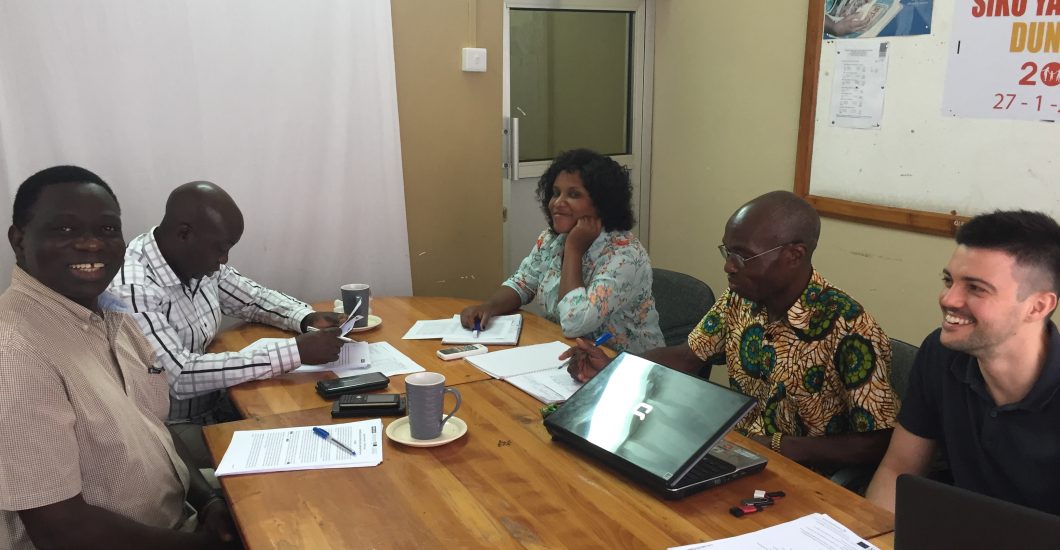
PEP4LEP Training material
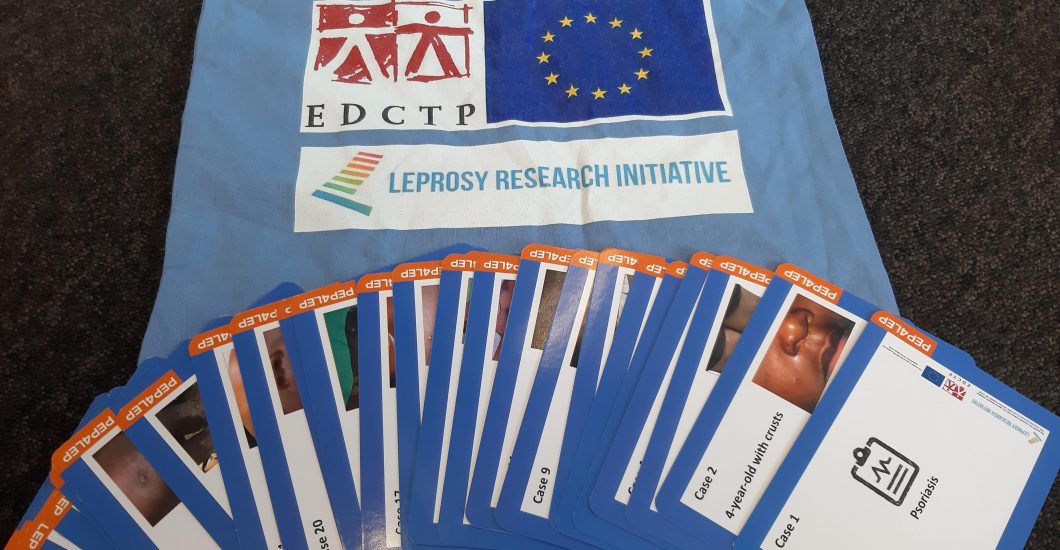
Validation studies
Earlier this year, six students from Maastricht and VU University visited the PEP4LEP countries for the validation of the research tools: the SkinApp and the case detection delay questionnaire. One of them was Valerie, who also spoke to Maria, a woman affected by leprosy in Tanzania.
Valerie: “I took Maria and her ‘neighbour’ for a nice meal. She has been treated for leprosy, but is suffering from severe disabilities from her past infection. The disabilities are limiting her life. Her neighbour helped her with cutting food and washing her hands afterwards. He also supports her in other household tasks, like cooking and washing clothes.”
Maria: ‘’I used to have big pieces of land but because of this disease, I can’t take care of it anymore.”
Valerie: “Maria also shared that her family no longer wanted to see her and excluded her. That is how she ended up living in the streets. She still has some friends. When I sat next to her on the street, quite some people greeted her and said ‘shikamo’ (I respect you). This gives her strength.”
With the help of SDR-PEP, we can hopefully prevent cases like hers.
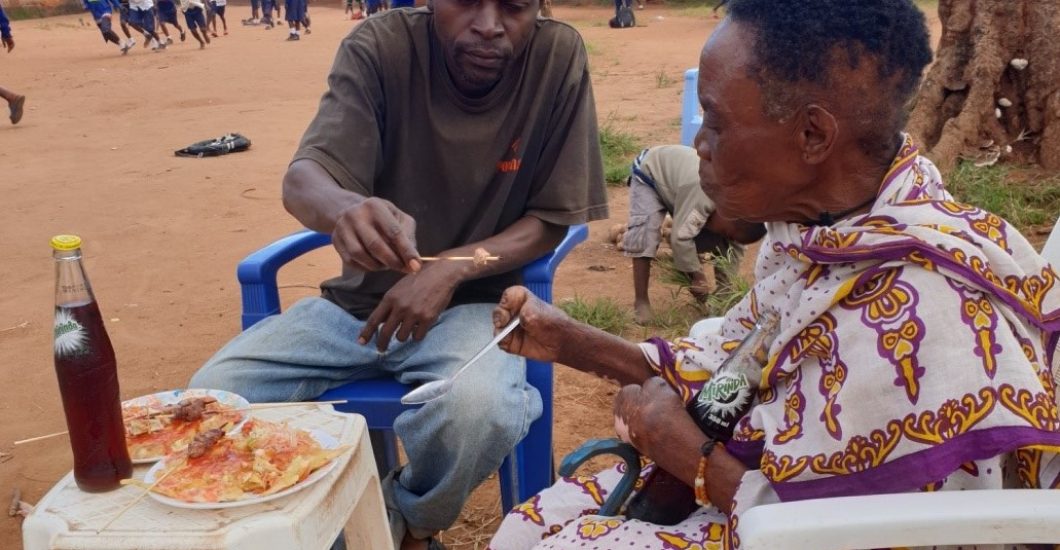
The 20th ILC
The 20th International Leprosy Congress (ILC) was held in Manila, Philippines on September 10-13, 2019. We are excited to announce that three PEP4LEP abstracts were submitted and presented:
– Dr. Nelly Mwageni presented on the SkinApp validation study in Tanzania
– Naomi de Bruijne, former NLR Master Student intern, presented on the development of the case detection delay questionnaire in Ethiopia
– A poster was presented on the PEP4LEP protocol.
We are very proud of this result and of Nelly and Naomi, who both did an outstanding job in representing the PEP4LEP team.
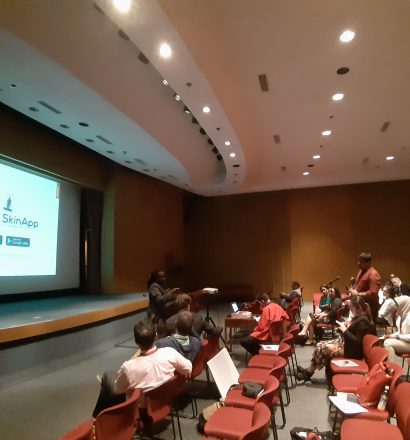
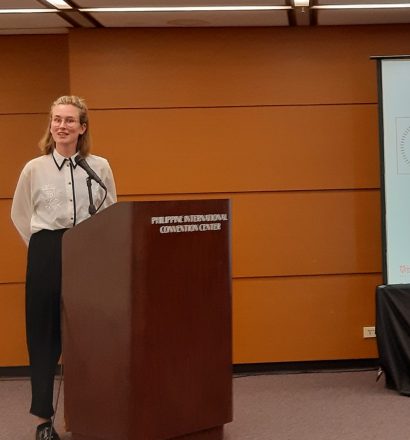
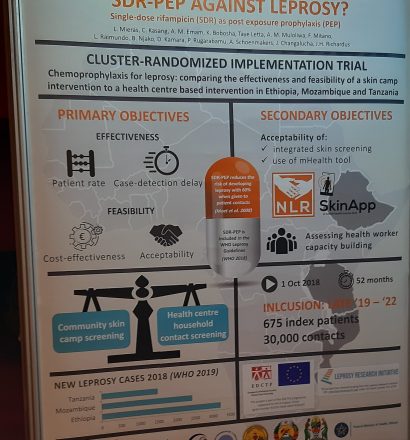
Looking forward
Since two out of three countries have obtained ethical approval, the inclusion of the first study participants can start. We hope to include the first participants in the last quarter of 2019.